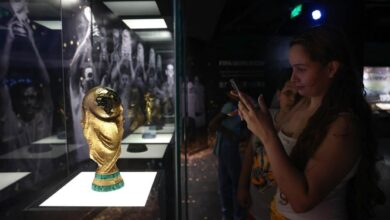Remembering Argentina’s 1978 World Cup Gamble: Power, Politics, and Repression

Argentina’s hosting of the 1978 FIFA Soccer World Cup allowed the country to bolster itself on the international stage while it practiced repressive measures under an overseas spotlight. According to sociologists Susanne Scharpf, Petra Gläßel, and Trevor Edwards at the Max Planck Institute of Economics in Germany, the military junta altered its tactics to appear good hosts.
The Power of Sports and Political Strategy
International sporting events, such as the Olympic Games and the FIFA World Cup, draw significant media attention and create high-stakes situations for host countries. When half the world tuned in to watch the 2016 Rio Olympics, Brazil had a unique opportunity to showcase itself, enhancing its global prestige and fostering national pride. The importance of these events is universally recognized, as democratic countries often aim to boost their cultural capital by hosting such prestigious occasions. At the same time, authoritarian states usually have another objective: such events also offer the opportunity for regimes to coast along on the popularity of successful integration into the international sporting world and the image of stability, modernity, and benevolence that comes with it. This was certainly the case with Argentina’s 1978 World Cup when the ruling military junta faced the challenges of demonstrating order and concealing its barbaric maintenance techniques.
For example, Argentina’s autocratic regime – as described in International Sports Events and Repression in Autocracies (2011) by Marcelo Ford Scharpf, Thomas Gläßel, and Neil Fligstein in the American Political Science Review – was delicate enough to calm repressions in the period before the tournament, both to ensure that it retained power and that protests against its rule did not materialize in ways that generated negative press. For autocratic regimes, allowing the world to see them in a certain way means suppressing dissent only sometimes – as in the examples above – and fomenting it at other times (when it can be hidden, away from prying eyes).
Risks and Rewards of Hosting International Sports Events
The attraction of hosting such events to authoritarian leaders is straightforward. National pride and people’s feelings of superiority on the field make for good campaign fronts for a regime seeking to galvanize its people around lofty ideals, craft the image of a prosperous and dominant nation, and garner support among elites. Moreover, making such events possible entails massive investments in infrastructure, where leaders gain an excellent opportunity to buy the loyalty of los patrocinadores (sponsors) by assigning contracts that yield high profits. The state contractors patronized by the junta in Argentina had a field day leading up to the games. The financial stakes were lucrative, and so were the political dividends at hand.
On the other hand, this game came with a risk: an increasing number of foreign reporters meant increased potential exposure to human rights violations. The power of the press to expose such violations is significant, as media attention in Argentina could be dangerous for the ruling elites. If the Argentine junta’s malpractice made it onto foreign media’s front pages, the publicity might prove lethal to its rulers. Scharpf, Gläßel, and Edwards write that when autocratic regimes restrict violence during events, they assume ‘the risk of exposure is relatively small.’ Public order that masks harsh repression was the junta’s blueprint for playing the World Cup.
The Junta’s Calculated Repression Strategy
Argentina’s military rulers faced a quandary: a blanket suppression of opposition would invite international condemnation, but, on the other hand, a heavy hand at home could incite domestic unrest. The junta responded by raising the ante on its crackdowns on potential hotbeds of dissent ahead of the tournament’s start, clearing the cities of Buenos Aires and Córdoba of dissidents who might have used the world stage to air their grievances. As kick-off loomed, it opted for a strategy of reduced violence, figures that believed a visible reduction in repression would manufacture a semblance of peace and order for the international media.
The regime’s aims were evident in the build-up to the World Cup finals. The number of enforced disappearances (the abduction of a person by the state or its agents, leading to concealment of the victim’s fate or whereabouts) and killings (‘selective,’ targeting identified individuals, especially left-wingers, for murder) both escalated sharply in the three months before the prestigious sports tournament. As the regime’s war on civil society was directed towards the shadows, keeping the world media’s attention trained on football stadiums rather than on the streets helped to disguise both the extent and operation of the Argentine junta’s repression in the eyes of the international community. The purpose was twofold: to cut out the voices of dissent while focusing global attention on Argentina as a united and stable country.
Control Through Visibility: The Role of Foreign Media
And so, as the tournament advanced, the junta would switch to the intimidation-and-distraction media-management strategy Scharpf, Gläßel, and Edwards, exploring the regime’s debut as host of the world’s most popular sport, document; they show that the junta concocted its P.R. through a P.R. firm set up in Paris by an intelligence officer to follow global coverage and change it to focus on tales of the host’s bravery and ‘progress.’ At the same time, staff writers denied or buried abuses. Government officials called a press conference to warn that journalists would find spies hidden in the curtains of their hotel rooms, a security precaution against subversives. This excerpt comes from a rich account of the junta’s media management around the 1978 FIFA World Cup; authoritarian regimes’ media management remains little-known but is due for its own World Cup soon.
This wasn’t the first time authoritarian leaders had used this technique. The president of China, Hu Jintao, had created ‘protest zones’ or ‘free-speech zones’ along the route from the airport to the Olympic Games venues in Beijing before the 2008 games. Civic groups were to exercise their voice in these designated areas, but the location of the zones was miles away from the action. This distance made it difficult for the protests to gain significant attention, resulting in limited participation, as the zones were miles away from the city center. To some, the setup amounted to a trap to stir criticism. China knew that many of its critics would not care to travel such lengths and that those who did would be immediately in the crosshairs of their watch lists. Argentina’s government applied the same tactic, adding hospitality, including press trips to wine regions, polo tournaments, and tango shows. The junta took great pains to offer the hospitality. A lavish hospital Spanish journalist would be less likely to try evading Argentine hospitality and head to the ‘wrong’ part of the country to dig up human rights stories. Hospitality lies at the heart of regime publicity.
Legacy of the Junta’s Strategy and Lessons for Autocratic Hosts
It’s hard to forget the Argentine junta’s abuse of the 1978 World Cup, serving as an example throughout the past decades of what a sporting event can do for the image of an autocratic state. Scharpf, Gläter, and Edwards’s work offers several lessons for future authoritarian hosts. The repressive regime understands that a global sporting event may be used for propaganda purposes. It allows them to present themselves as stable, prosperous, and open places. By papering over the realities of intra-state frictions or suspending any repressive measures that otherwise characterize the rule, the host state can present itself to the outside world as a place in control and under order without being subject to any independent scrutiny about its own rule.
Also read: Argentine Sensation Colapinto Impresses F1 with Unprecedented Skill
This narrative control applies to the strategic use of sports today. Similar measures have been used for domestic events in Russia for the 2018 World Cup, Qatar for the 2022 World Cup, and what was left of Egyptian international tournament hosting. But, as Scharpf, Gläßel, and Edwards reveal, this kind of spectacle requires ‘keeper of the lid’- style control at home and a nuanced understanding of how international media changes perceptions.





